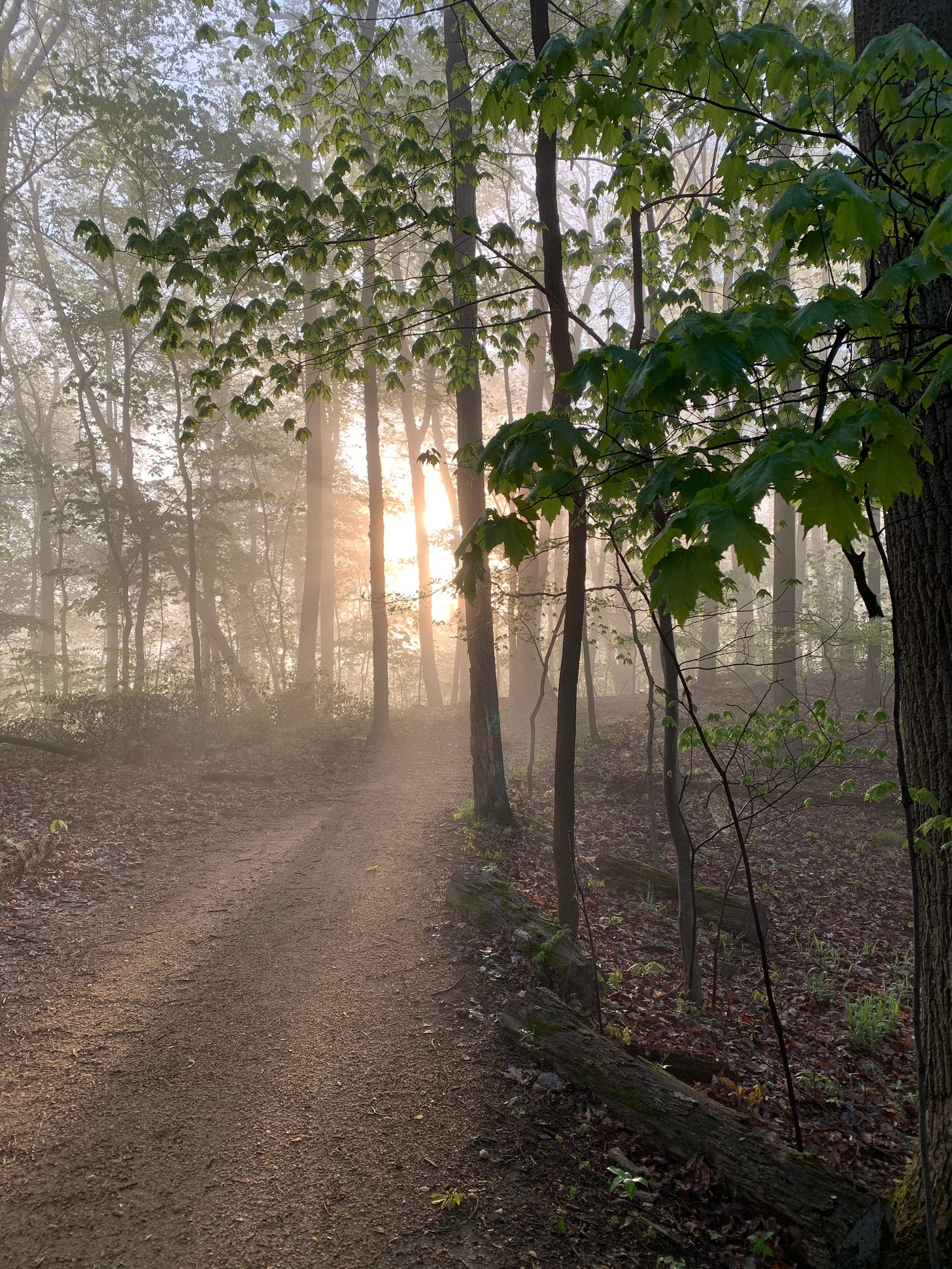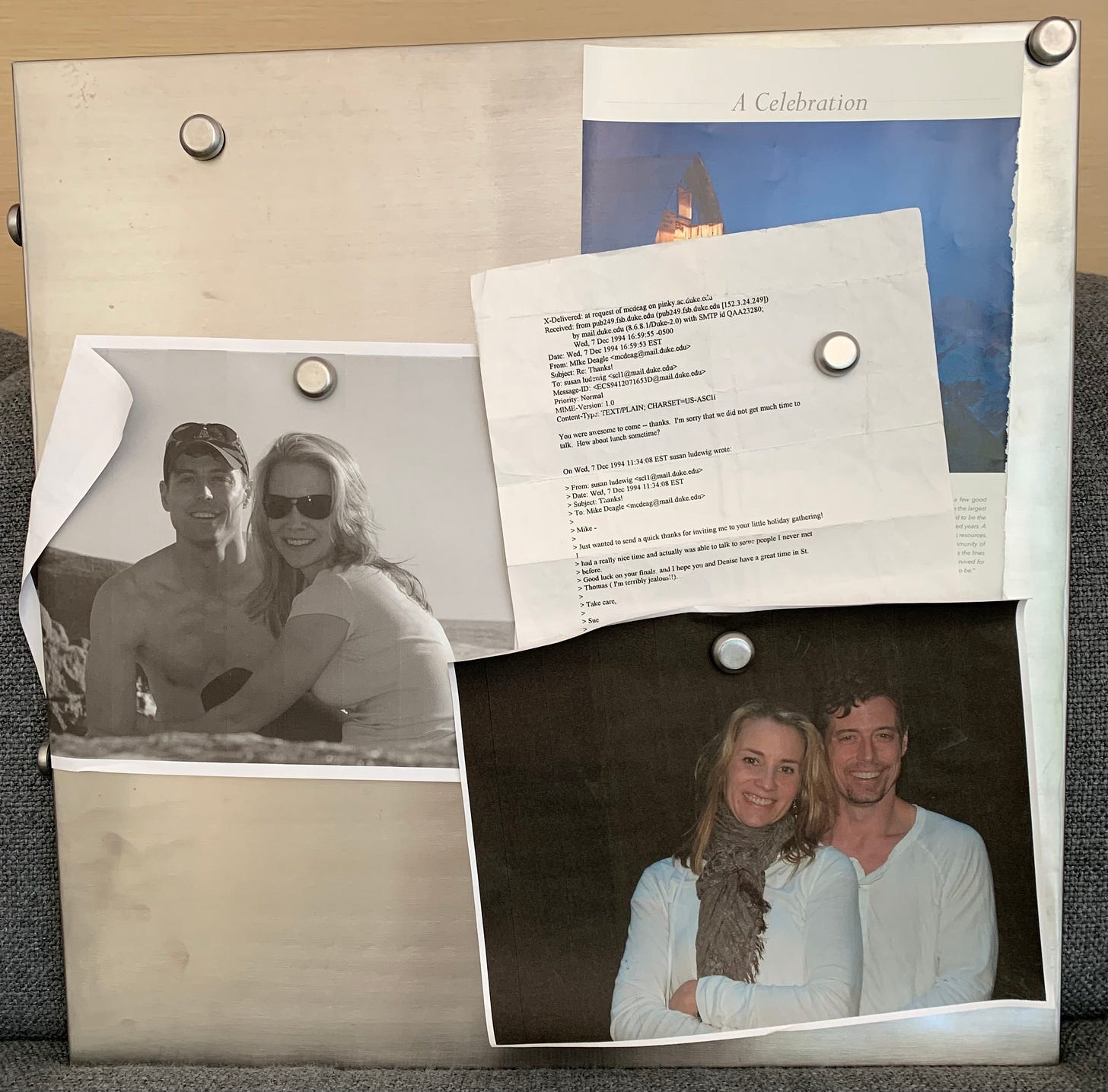#1: Why talking about grief and loss (not just when someone dies) really matters.
And where to begin without freaking out your friends and family — and yourself.
In our culture, discussing death is taboo — wrapped in fear, uncertainty, anxiety. We have become so disconnected from the personal and collective experience of death and its aftermath that we treat life’s end like the monster under the bed… We don’t know exactly what is under there, but we are terrified of it and avoid thinking about it at all costs.
It was not always this way! Less than 100 years ago, death was integrated into our lives.
Our churches, temples, mosques, our rituals, our communities, our families all supported this difficult and inevitable part of being human. We took care of our dying loved ones at home, we spent time with their bodies after they had passed, and we taught our children that death was part of life.
We were more entwined with nature and understood that its cycles were ours too — birth, death, renewal.
We formed shared opinions about the afterlife. We offered solace to those who were grieving through shared meals and gatherings. We helped each other move from surviving to eventually thriving once again.
Now in the 2020’s, we’ve lost this context.
Even the pandemic — with 15 million lives lost according to the WHO — has not changed our ways of approaching death and loss. Arguably, it has pushed death even further down into our subconscious, with more layers of avoidance piled on top.
Why does ignoring the topic of death matter?
Can’t we just keep not thinking, let alone not talking about death?
Hiding from things that scare us versus talking about and preparing for things that scare us… Which sounds like a recipe for a better life? Especially for something as inexorable as death?
By not talking about it, we’re making the monster under the bed scarier.
Death and loss are scary and hard and debilitating enough. Combining it with humans’ general fear of the unknown seems like twisting the knife.
What’s more, we are depriving ourselves of the opportunity to learn how to manage it better. To dance with it better. To make the rest of our lives better. Yes. To make the rest of our lives better. I say this from experience. (More on that below.)
Which is where The Luminist comes in…
(This funny little corner of the internet where you seemed to have found yourself!)
At The Luminist, we are creating an online community dedicated to discussing and demystifying the processes of grief and loss.
A forum where where we can bring our full selves, not just the happy bits.
A conversation devoted to shining a light on death, grief, and loss to help us console better, suffer less, and live more vibrant lives.
At The Luminist we are talking about the nitty gritty of death, loss, and grieving.
What are we specifically afraid of about death? How does it feel to lose a loved one? How have we been consoled well? How have we been consoled poorly? How have we transformed? How have people survived and thrived? What are the mindsets that help us? How do memory, time, mystery, perspective, connection, nature all fit into the picture?
Most importantly, we’re talking about the way death and loss change our lives.
We’re talking about the way surviving something so impossibly hard — supported by meaningful connection and our own inner strength — makes us more alive.
More purpose-driven, more prioritized, more focused, more aware, more connected. More human.
So, bringing death out of the shadows matters profoundly. It matters because it will change our lives for the better.
What are my qualifications?
In 2016 I was one half of a happily married, go-getter American duo. Two kids, two jobs, lots of adventure, a fair share of stress, tons of love. Then that life disappeared in an instant when my intense, spectacular, vibrant, and healthy husband Mike died suddenly of a heart attack at age 50.
What I lost was unimaginable and myriad. What I gained was completely unexpected. Mysterious. Deep. Profound. Empowering. Shocking.
Now, I am a student of what death means for the living.
Yes, I had the unwelcome experience of being thrown into the deep end. Torn to shreds. Blasted to bits. But since then, I have rebuilt my life with a profound sense of wonder and awe.
I have been stunned to find meaning in loss in all kinds of places — from the intellectual to the emotional, from the sacred to the mundane, from nature to spending time in deep connection with my fellow human beings.
And now I am on a mission to share what I have learned with you — and also to learn more from you… so we can change each other and the world.
What about you?
This space is about you. What might you be seeking if you landed on this post? Here are some possibilities:
How the hell do people survive and maybe even thrive after a devastating loss?
How will I deal with this when it is my turn to dance with profound grief (even though I hope it will never actually be my turn)?
I have been through a loss but nobody wants to talk with me about it and I feel isolated… Can I find support from this community so I don’t have to edit myself or sweep things under the rug?
My friend/loved one/coworker/acquaintance just lost someone and I don’t know how to help, can you give me some ideas?
I am afraid. Can you help me be less so? Can you help me be more alive?
We will dive into all these questions and more.
We are going to tell stories, share wisdom, study books, movies, songs, art. We are going to swap resources, bust myths, shed tears, examine old ideas and generate new ones, share a dash of gallows humor, and generate insights on this fundamental human experience.
And we will no longer feel alone.
One crucially important note: this is not a place for toxic positivity.
This is a place for us to engage and recognize the lingering sadness and longing that accompany loss, while simultaneously opening to its transformative power and the resulting aliveness on the other side.
This is a movement.
I am here because I have absorbed loss and grief in a way that has powered my life… And filled me with light, purpose, connection, and meaning.
I know I’m not an exception or an outlier. I know this kind of transformation is possible for others…
So I want to share my insights and discover more with anyone who dares to join me in this conversation.
To that end, I offer you a space in this community and dialogue as a seeker, questioner, contributor, observer — really in any way works for you.
It’s a tough subject.
Thanks for your courage and bravery in joining me. I know it will make our lives better.
Welcome to The Luminist: shining a light on death for the living.
Sincerely,
Sue
Helpful links to get you started:
My online book recommendation list at Bookshop.org: See which books helped me the most during the “acute phase” of my grief, and which books continue to inspire my development and healing.
My most popular posts:
Post #2: Why I wouldn’t trade away the grief: While I would give anything to have my late husband back, my life is more vibrant, more meaningful, more miraculous thanks to the lessons of grief and loss.
Post #22: The resilience experiment: If you can learn from “failure” without self-judgment, you can be resilient.
Post #13: We are not islands: Releasing the myths of avoidance and isolation.
Post #4: Console better: The profound power of bearing witness, sharing stories, and asking questions.
Post #17: Mystery is my religion: We can’t escape chaos. But we can reframe it.
Post #6: The radiance in dailiness: Grief taught me to see the magic in the “ordinary”. Let me show you an easier way.








Thanks all for jumping into the conversation! Looking forward to some great weekly dialogues and the expansion of this discussion far and wide. Next post drops Saturday morning! ❤️
Such a powerful message born out of your personal journey. Thank you for sharing and creating a space for others. Oddly enough, just Sunday I had a conversation with someone I love whose health (body) is failing and whose mind is still razor sharp. We talked about death after they expressed feeling so badly earlier in the week that they thought they might be dying. Instead of glossing over the statement, I asked what that felt like for them and we talked about it openly for a bit.